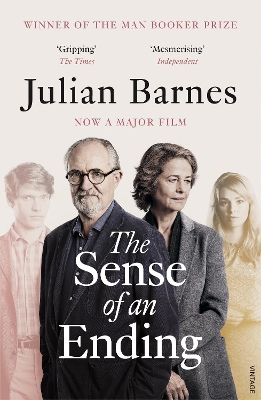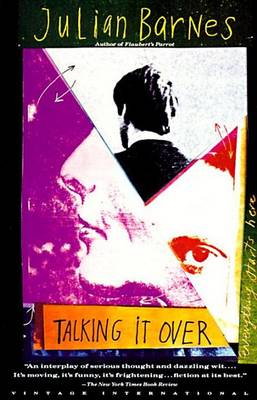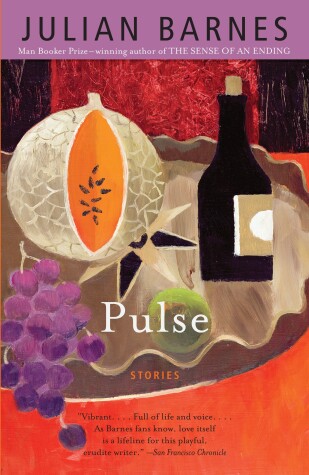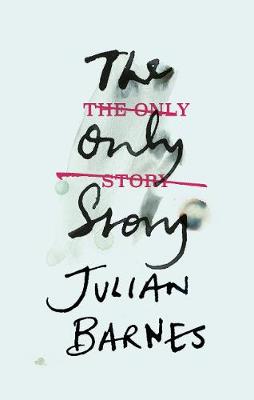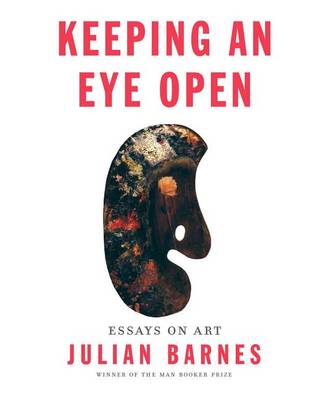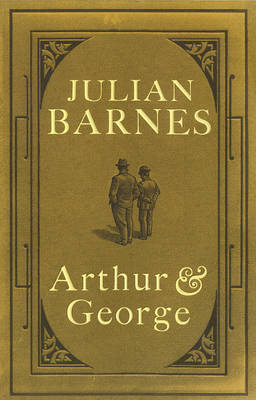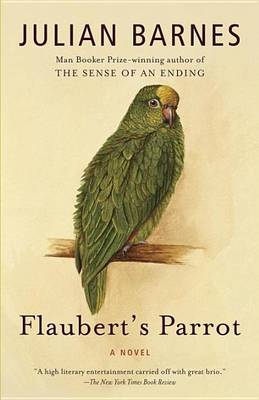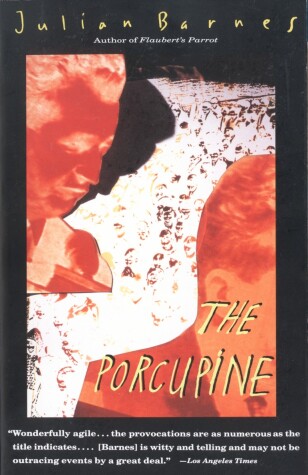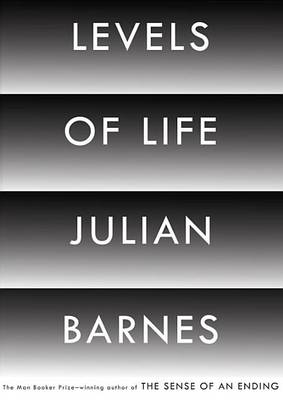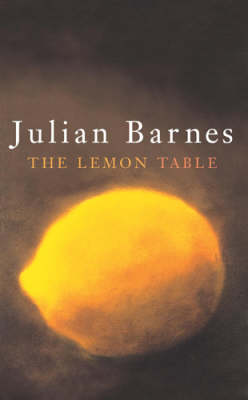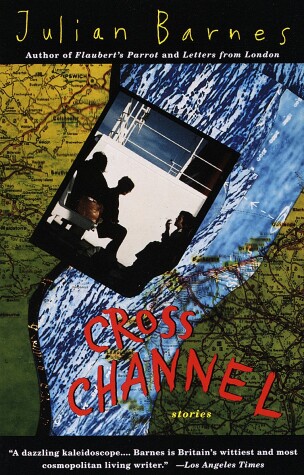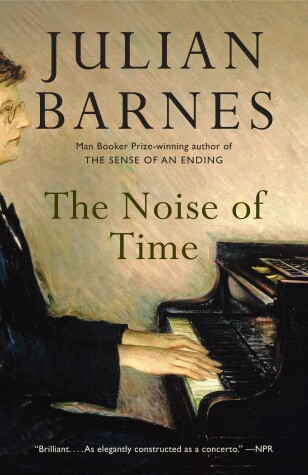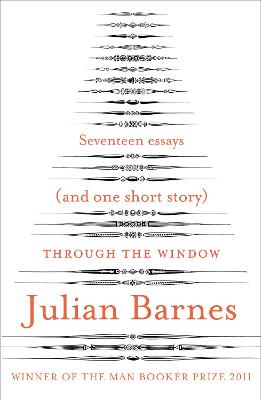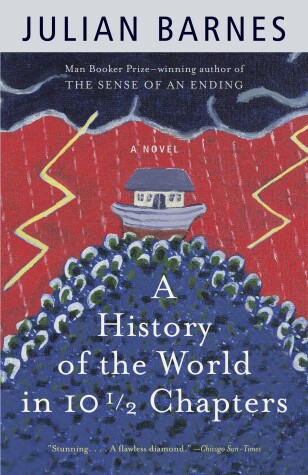Vintage International
21 total works
A monumental novel capturing how one man comes to terms with the mutable past.
'A masterpiece... I would urge you to read - and re-read ' Daily Telegraph
**Winner of the Man Booker Prize for Fiction**
Tony Webster and his clique first met Adrian Finn at school. Sex-hungry and book-hungry, they would navigate the girl-less sixth form together, trading in affectations, in-jokes, rumour and wit. Maybe Adrian was a little more serious than the others, certainly more intelligent, but they all swore to stay friends for life.
Now Tony is retired. He's had a career and a single marriage, a calm divorce. He's certainly never tried to hurt anybody. Memory, though, is imperfect. It can always throw up surprises, as a lawyer's letter is about to prove.
In these fourteen brilliant stories, the Man Booker Prize-winning author of The Sense of an Ending examines longing and loss, friendship and love, the historical past and contemporary life—all with his trademark wit and sharply observant eye. A newly divorced man invades his reticent girlfriend's privacy, only to discover that the information he finds reveals his own callously shallow curiosity. A couple comes together through an illicit cigarette and a song shared over the din of a Chinese restaurant. A widower revisiting the Scottish island he treasured with his wife learns how difficult it is to overcome grief. And scattered throughout, a group of friends gather regularly at dinner parties, perfecting the art of cerebral, sometimes bawdy banter. Each story in this extraordinary collection pulses with the resonance, spark, and poignant humor for which Barnes is justly heralded.
**THE SUNDAY TIMES BESTSELLER**
Would you rather love the more, and suffer the more; or love the less, and suffer the less? That is, I think, finally, the only real question.
First love has lifelong consequences, but Paul doesn’t know anything about that at nineteen. At nineteen, he’s proud of the fact his relationship flies in the face of social convention.
As he grows older, the demands placed on Paul by love become far greater than he could possibly have foreseen.
Tender and wise, The Only Story is a deeply moving novel by one of fiction’s greatest mappers of the human heart.
A special edition of Julian Barnes’s first novel with an introduction from the author and previously unseen archive material.
Christopher and Toni found in each other the perfect companion for that universal adolescent pastime: smirking at the world as you find it. In between training as flaneurs and the grind of school, they cast a cynical eye over their various dislikes: parents with their lives of spotless emptiness, Third Division (North) football teams, God, commuters and girls, and the inhabitants of Metroland: the strip of suburban dormitory Christopher calls home.
Longing for real life to begin, Christopher makes for Paris in time for les événements of 1968, only to miss it all in a haze of sex, French theatre and first love. And before long he finds himself drawn inevitably back to Metroland and the very life he was trying to escape...
This special edition contains unseen archive material including letters from early fans such as Philip Larkin and Dodie Smith, contemporary reviews, a deleted scene from the original manuscript as well as an introduction from the author.
Incensed at this obvious miscarriage of justice, he is galvanised into trying to clear George?s name. With a mixture of detailed research and vivid imagination, Julian Barnes brings to life not just this long-forgotten case, but the inner lives of these two very different men. The reader sees them both with stunning clarity, and almost inhabits them as they face the vicissitudes of their lives, whether in the dock hearing a verdict of guilty, or trying to live an honourable life while desperately in love with another woman. This is a novel in which the events of a hundred years ago constantly set off contemporary echoes, a novel about low crime and high spirituality, guilt and innocence, identity, nationality and race; about what we think, what we believe, and what we know.Julian Barnes has long been recognised as one of Britain?s most remarkable writers. While those already familiar with his work will enjoy its elegance, its wit, its profound wisdom about the human condition, Arthur & George will surely find him an entirely new audience.
Which of two stuffed parrots was the inspiration for one of Flaubert's greatest stories? Why did the master keep changing the colour of Emma Bovary's eyes? And why should it matter so much to Geoffrey Braithwaite, a retired doctor haunted by a private secret? In Flaubert's Parrot, Julian Barnes spins out a multiple mystery of obsession and betrayal (both scholarly and romantic) and creates an exuberant enquiry into the ways in which art mirrors life and then turns around to shape it.
'A gem: an unashamed literary novel that is also unashamed to be readable, and broadly entertaining. Bravo!' John Irving
'Endless food for thought, beautifully written . . . A tour de force' Germaine Greer
'Delightful and enriching . . . A book to read' Joseph Heller
'A dazzling achievement . . . remarkably inventive as well as audacious' Walter Abish
'A delight . . . Handsomely the best novel published in England in 1984' John Fowles
We follow her bruising experience in marriage, her probing of male truths, her adventures in motherhood and in China and we cannot fail to be moved by the questions she asks of life and the often unsatisfactory answers it provides.
Stoyo Petkanov, the deposed Party leader, is placed on trial for crimes that range from corruption to political murder. Petkanov's guilt—and the righteousness of his opponents—would seem to be self-evident. But, as brilliantly imagined by Barnes, the trial of this cunning and unrepentant dictator illuminates the shadowy frontier between the rusted myths of the Communist past and a capitalist future in which everything is up for grabs.
You put together two things that have not been put together before. And the world is changed...
In Levels of Life Julian Barnes gives us Nadar, the pioneer balloonist and aerial photographer; he gives us Colonel Fred Burnaby, reluctant adorer of the extravagant Sarah Bernhardt; then, finally, he gives us the story of his own grief, unflinchingly observed.
This is a book of intense honesty and insight; it is at once a celebration of love and a profound examination of sorrow.
**ONE OF THE GUARDIAN'S 100 BEST BOOKS OF THE 21st CENTURY**
These stories are wise, funny, clever and moving.
In this collection, Barnes explores the narrow body of water containing the vast sea of prejudice and misapprehension which lies between England and France with acuity, humor, and compassion. For whether Barnes's English characters come to France as conquerors or hostages, laborers, athletes, or aesthetes, what they discover, alongside rich food and barbarous sexual and religious practices, is their own ineradicable Englishness. The ten stories that make up Cross Channel introduce us to a plethora of intriguing, original, and sometimes ill-fated characters.
Elegantly conceived and seductively written, Cross Channel is further evidence of Barnes's wizardry.
1936: Dmitri Shostakovich, just thirty years old, reckons with the first of three conversations with power that will irrevocably shape his life. Stalin, hitherto a distant figure, has suddenly denounced the young composer’s latest opera. Certain he will be exiled to Siberia (or, more likely, shot dead on the spot), Shostakovich reflects on his predicament, his personal history, his parents, his daughter—all of those hanging in the balance of his fate. And though a stroke of luck prevents him from becoming yet another casualty of the Great Terror, he will twice more be swept up by the forces of despotism: coerced into praising the Soviet state at a cultural conference in New York in 1948, and finally bullied into joining the Party in 1960. All the while, he is compelled to constantly weigh the specter of power against the integrity of his music.
Julian Barnes's long and passionate relationship with France began more than forty years ago. As sceptical observer on family motoring holidays, assistant in a school in Brittany, student of the language and literature, author of Flaubert's Parrot and Cross Channel, he has criss-crossed the country and its culture. The essays collected here, written over a twenty-year period, attest to his clear-eyed appreciation of the Land Without Brussels Sprouts. He ranges widely, from landscape to literature, food to Flaubert, film and song to the Tour de France. His humour, timing and intelligence never falter. When Picador published his Letters from London, the Financial Times called him 'our finest essayist'. Something to Declare confirms that judgement: it is a great literary delight.
'Julian Barnes seems to have done more for Anglo-French relations than anyone since Edward VII' Daily Telegraph
'The French revere Julian Barnes - and we, I think, quite wrongly, just admire him' Joanna Trollope
In these seventeen essays (and one short story) the 2011 Man Booker Prize winner examines British, French and American writers who have meant most to him, as well as the cross-currents and overlappings of their different cultures. From the deceptiveness of Penelope Fitzgerald to the directness of Hemingway, from Kipling's view of France to the French view of Kipling, from the many translations of Madame Bovary to the fabulations of Ford Madox Ford, from the National Treasure Status of George Orwell to the despair of Michel Houellebecq, Julian Barnes considers what fiction is, and what it can do. As he writes in his preface, 'Novels tell us the most truth about life: what it is, how we live it, what it might be for, how we enjoy and value it, and how we lose it.'
When his Letters from London came out in 1995, the Financial Times called him 'our best essayist'. This wise and deft collection confirms that judgment.
It's a hilariously revisionist account of Noah's ark, narrated by a passenger who doesn't appear in Genesis. It's a sneak preview of heaven. It encompasses the stories of a cruise ship hijacked by terrorists and of woodworms tried for blasphemy in sixteenth-century France. It explores the relationship of fact to fabulation and the antagonism between history and love. In short, A History of the World in 10½ Chapters is a grandly ambitious and inventive work of fiction, in the traditions of Joyce and Calvino, from the author of the widely acclaimed Flaubert's Parrot.
